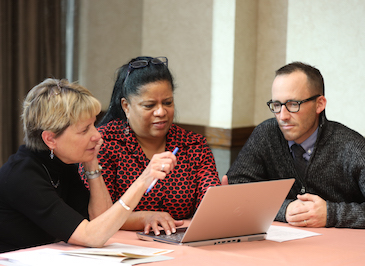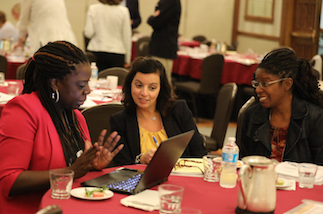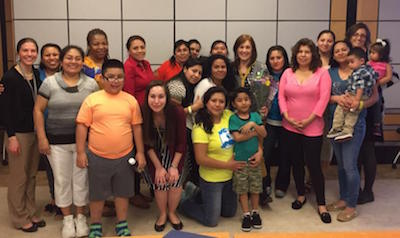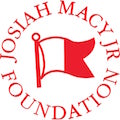IPFCC’s 8th International Conference on Patient- and Family-Centered Care: Promoting Health Equity and Reducing Disparities
|
IPFCC’s biennial International Conference offers a unique opportunity for presenters from across the U.S., Canada, and other countries to share best practices, innovative programs, and outcomes related to patient- and family-centered care. IPFCC believes that in order to achieve a health care system that is equitable for all, we must strengthen the capacity to create partnerships with individuals and families living in underserved communities and representative of racial and ethnic minorities. These partnerships must be evident at the care level and in quality improvement, interprofessional education, and research. For the 8th International Conference, IPFCC will feature exemplars that have partnered with patients, families, and communities to effectively reduce disparities in health and health care.
The 8th International Conference will be held in Baltimore, MD in June 2018 and IPFCC is pleased to announce that Johns Hopkins Medicine (JHM) will serve as a leadership sponsor of this important event. As a health system, JHM has made a strong commitment to diversity, inclusion, and cultural competency – through its Office of Diversity and Inclusion, the Johns Hopkins Center to Eliminate Cardiovascular Health Disparities and the Johns Hopkins Center to Reduce Cancer Disparities.
The Call for Abstracts will be disseminated in May 2017 – watch your mailboxes.
|
Honoring Celeste Lee – Recognition from AAKP, UMHS, and IPFCC
|
It is with deep sadness that we share the news that Celeste Castillo Lee, long-time IPFCC faculty member, former Program Manager for Patient and Family Centered Care at the University of Michigan Health System, and a former Board Member and Chair of the Patient and Family Partnership Council for the Kidney Health Initiative (Greater Detroit Area, Michigan) passed away. Celeste worked tirelessly as a powerful advocate for her own health and for the health of those in her community and across the nation.
Celeste’s work has long been recognized and in January, she received the 2017 Medal of Excellence from the American Association of Kidney Patients (AAKP). Read the full press release.
The University of Michigan Health System established the Celeste Castillo Lee Peer Mentoring Award and established a fund in her name to strengthen UMHS PFCC initiatives, including the peer mentoring program. Donations to the fund can be made here.
In Celeste’s honor, the Board of the Institute for Patient- and Family-Centered Care is creating the Celeste Castillo Lee lecture as part of its 8th International Conference for Patient- and Family Centered Care. The lecture will focus on peer support and building partnerships with patients living with chronic conditions and their families.
Listen to an interview with Celeste and her husband, Daniel Lee for the University of North Carolina School of Medicine.
|
Primary Care Corner – Children’s Medical Practice, Johns Hopkins Bayview, Latino Family Advisory Board
|
Johns Hopkins Bayview Medical Center (JHBMC), in southeast Baltimore City, MD, is a hospital and medical office center within the Johns Hopkins Health System. Because of its growing immigrant population, diversity and inclusion are top priorities at JHBMC.
The Children’s Medical Practice (CMP) is the Medical Center’s outpatient pediatric clinic providing comprehensive primary care for children through age 21. The clinic’s majority patient population is Latino children with immigrant parents who have limited English proficiency.
To create better health services to meet the needs of Latino families, the Latino Family Advisory Board (LFAB), El Consejo de Familias Latinas, was established in 2011. The 19 active members of the LFAB are Latino immigrant families who have received care at CMP. The LFAB meets monthly and all meetings are conducted in Spanish. Childcare, dinner, and a small stipend are provided to members.
During its first five years, the Consejo has worked on a number of projects to improve Clinic services:
- Desirability and feasibility of group prenatal care
- Improved support for continuous Medicaid enrollment
- Design of the new Care-A-Van, a free, mobile medical unit
- Spanish language Epic pediatric results letter templates
- Ongoing collaboration in a pilot study, Salud al Dia, to improve patient engagement via text messages and educational videos
In a recent evaluation, Consejo members reported significant satisfaction with their involvement. One mother commented, “I am very happy with the board (LFAB) because they allow us to contribute to projects happening at our child’s clinic.”
Dr. Lisa DeCamp, who directs the Consejo, describes its benefits: “Consejo members have helped us to prioritize changes, recognize the strengths and limitation of our programs, and gain a better understanding of the many factors that contribute to families’ ability to promote the health of their children.”
IPFCC is partnering with the Patient-Centered Primary Care Collaborative (PCPCC) as part of its Transforming Clinical Practice Initiative (TCPI) Support and Alignment Network (SAN). This column provides highlights from the field.
|
Spotlight on TCPI Person and Family Engagement Performance (PFE) Metrics
|
In the next few months, the Primary Care Corner will highlight key
PFE metrics and share resources to help ambulatory practices embed PFE performance standards
into the way they provide care and operate their practices/clinics.
Below, we briefly explore the metric, Support of Patient and Family Voices in Practice Governance.
Support of Patient and Family Voices in Practice Governance Metric
- Are there policies, procedures, and actions taken to support patient and family participation in governance or operational decision-making of the practice?
Participation of "Person and Family Advisors" can guide practices in improving patient- and family-centered care. Advisors can serve as members of any practice committee and should be considered part of the team. Larger practices may form a Patient and Family Advisory Council. Advisors provide feedback to ensure that the patient/family "voice" is included in practice redesign.
The following resources help prepare practices to engage patients and families as advisors:
Advancing the Practice of Patient- and Family-Centered Care in Primary Care and Other Ambulatory Settings: How to Get Started
This guide from IPFCC helps practices create partnerships with patients and families to advance patient- and family-centered care in primary care and other ambulatory settings.
Forming a Patient and Family Advisory Council Module
This module from the American Medical Association outlines eight key steps to form a Patient and Family Advisory Council. This is part of the AMA’s STEPSforward initiative that helps physicians "redesign your practice and reignite your purpose."
If you already partner
with patients and families to improve primary or ambulatory care and
want to share your successes, or you want to learn more, IPFCC hosts a
free online learning community for Primary and Ambulatory Care
Partnerships on its PFAC Network. Additional discussion on the PFE Metrics will occur through this online community. For more information about joining,
please contact Mary Minniti.
|
|
|
IPFCC Webinars are a cost-effective educational resource. Cost is per line, so a group of any size can participate from the same location on one line. Learn more
|
|
| Health Equity Must Be a Strategic Priority |
An article in the January 4, 2017 issue of NEJM Catalyst, Health Equity Must Be a Strategic Priority, reports on research conducted by the Institute for Healthcare Improvement
(IHI) since 2015 with health systems that have taken a comprehensive
approach to health equity. Based on the findings, IHI recommends five
concrete actions that health care organizations can take: (1) Make
health equity a leader-driven priority; (2) Develop structures and
processes that support equity; (3) Take specific actions that address
the social determinants of health; (4) Confront institutional racism
within the organization; and (5) Partner with community organizations.
|
Patient and Family Advisory Councils: Advancing Culturally Effective Patient-Centered Care
|
This March 2016 brief was produced by the Institute on Assets and Social Policy at Brandeis University in partnership with the Health Profession Opportunity Project,
New Hampshire Office of Minority Health and Refugee Affairs. Because
establishing a patient and family advisory council (PFAC) is a leading
strategy for integrating the patient and family perspective into
organizational improvement, it is important that PFACs reflect the
diversity of patient populations. Informed by research conducted by
Brandeis University’s Healthcare Employer Initiative, the brief outlines
four concrete steps to help facilitate PFAC diversity within health
care organizations. Read the full report.
|
Partnerships in Interprofessional Education – New Web Resources
|
IPFCC is proud to announce a new section of its website, Partnerships in Interprofessional Education (IPE). While the insights and perspectives of patients and families about the health care system can enhance education – for clinicians at all levels and of all disciplines – there are relatively few IPE programs that actually include patients and families as educators.
Available for use at the end of February, this new section of the website will feature exemplars that have patient/family educators successfully integrated in their programs. These examples and tools included on the website are designed to help health care institutions begin or expand their own efforts to involve patients and families in this important way.
This section of the IPFCC website was supported in part by a President’s Grant from The Josiah Macy Jr. Foundation.
|
Links
|
|
• International Conference
• Our Services
• Webinar Schedule
• Calendar of Events
|
| Previous Issues |
|
• January 2017
• November/December 2016
• More issues from the Archive
|
About Us
|
| Founded in 1992 as a nonprofit organization, the Institute for Patient- and Family-Centered Care (IPFCC) works to advance the understanding and practice of patient- and family-centered care in all settings where individuals and families receive health care. |

IPFCC Faculty at Work |
|
|









